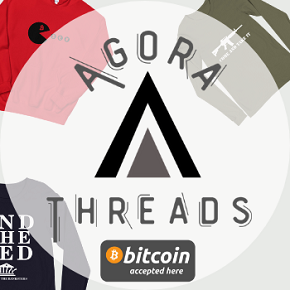
How to Obscure Bitcoin and Bitcoin Cash Transactions
Over 11 years into bitcoin’s trajectory, it’s still a commonly held and incorrect belief that bitcoin transactions are anonymous. They may not include your name, but without taking proper steps, data can be aggregated about your addresses and wallets that could tie your identity to your funds. For some people this might be alright, but if one’s reason — at least in part — for entering the crypto game is to evade the violent hands of the state, the following wallets and protocols might help along that path.
Bitcoin Cash
The most popular way currently to obscure and conceal Bitcoin Cash transactions and funds is to use Cash Shuffle. Currently built into the popular Electron Cash wallet for desktop, Cash Shuffle will swap your coins with others in a pool anonymously, making tracing the trajectory and sources of your crypto nearly impossible for anyone trying to follow the trail, or to build a picture of your activities. Cash Shuffle is slated to be integrated to the Bitcoin.com and Badger wallets as well, but it’s uncertain when these updates will occur.
Regardless, The Electron Cash wallet integration works, and as the Cash Shuffle website details:
“When CashShuffle is enabled, your Bitcoin Cash wallet will keep track of shuffled (private) and unshuffled coins. In the background it continuously shuffles any unshuffled UTXOs for you. This way you can always spend your coins quickly and without worrying about prying eyes.”
Another interesting protocol being developed for BCH is Cash Fusion, of which independent developer Mark Lundeberg stated, “with hundreds of inputs and outputs, it is not just computationally impractical to iterate through all partitions, but even with infinite computing power, one would find a large number of valid partitions.”
Many are looking forward to Cash Fusion as a new pinnacle of BCH and crypto privacy, and even representatives of BTC coin shuffling services have complemented the project.
Bitcoin
Wasabi Wallet is another popular desktop option, in this case for performing anonymous coin joins with BTC. Trustless coin shuffling is enabled by Wasabi utilizing the Tor network for the performance of Chaumian CoinJoins.
Wasabi explains that “A CoinJoin is a special Bitcoin transaction where several peers get together to literally join their coins in a single transaction. They collaboratively build a transaction where each of them provides some coins as inputs, and fresh addresses as outputs. The concept has been around since the early days of Bitcoin…”
For those that prefer to use a mobile wallet, Samourai’s “bitcoin wallet for the streets” may be just what Doctor Satoshi ordered. Samourai Wallet’s “Whirlpool” mixing protocol is available for Android devices as well as desktop computers. Samourai is a bit more tech intensive (though not impossible for a crypto newb) and as such users are advised to have a basic understanding of how Chaumian CoinJoins and UTXOs (unspent transaction outputs) work before diving in headlong.
It is important to remember with any protocol that ultimately metadata and certain consolidations of UTXOs could potentially be used by advanced chain analysis sleuths to gather info. Always be sure to do your due diligence and research before mixing.
Another Agorist Option for Bitcoin Privacy
In addition to the above methods for private transaction in crypto, an often overlooked third avenue is available involving one’s immediate circle of trusted individuals. General guidelines like always using a fresh wallet address to throw prying eyes off one’s trail, and using coin mixers are great, and should be employed, but trading paper wallets and crypto in person with only trusted parties, utilizing cold storage, can also be done.
For example, let’s say you do some work for your neighbor and wish to be paid in bitcoin or vice versa. Bitcoin and Bitcoin Cash can be loaded onto securely and anonymously generated paper wallets and used as a cold storage payment option. This way, there is no record of the payer’s wallet address making a payment to your bitcoin wallet. There’s only the paper wallet, the physical whereabouts of which third parties cannot find via the blockchain. Of course, when it comes time to use the crypto and sweep the wallet, care will have to be taken concerning which address the funds are swept to, but during the interim the funds are offline, safe, and thus more private.
Paper wallets containing identical amounts of crypto can also be physically traded amongst trusted parties, further increasing opsec, in a physical version of coin shuffling.
Utilizing the above protocols, wallets, and methods can make blockchain analysis much more challenging for malevolent third parties and governments (but I repeat myself), and means to obscure bitcoin transactions are really only limited to the imagination of the crypto holder. For hardcore privacy enthusiasts, there is also the option of using a privacy crypto such as monero, which has extreme anonymity baked right into the codebase. That said, metadata analysis and opsec errors mean that everyone should do their own due diligence research, and take articles such as this as information sources, and not financial advice. Good luck!









